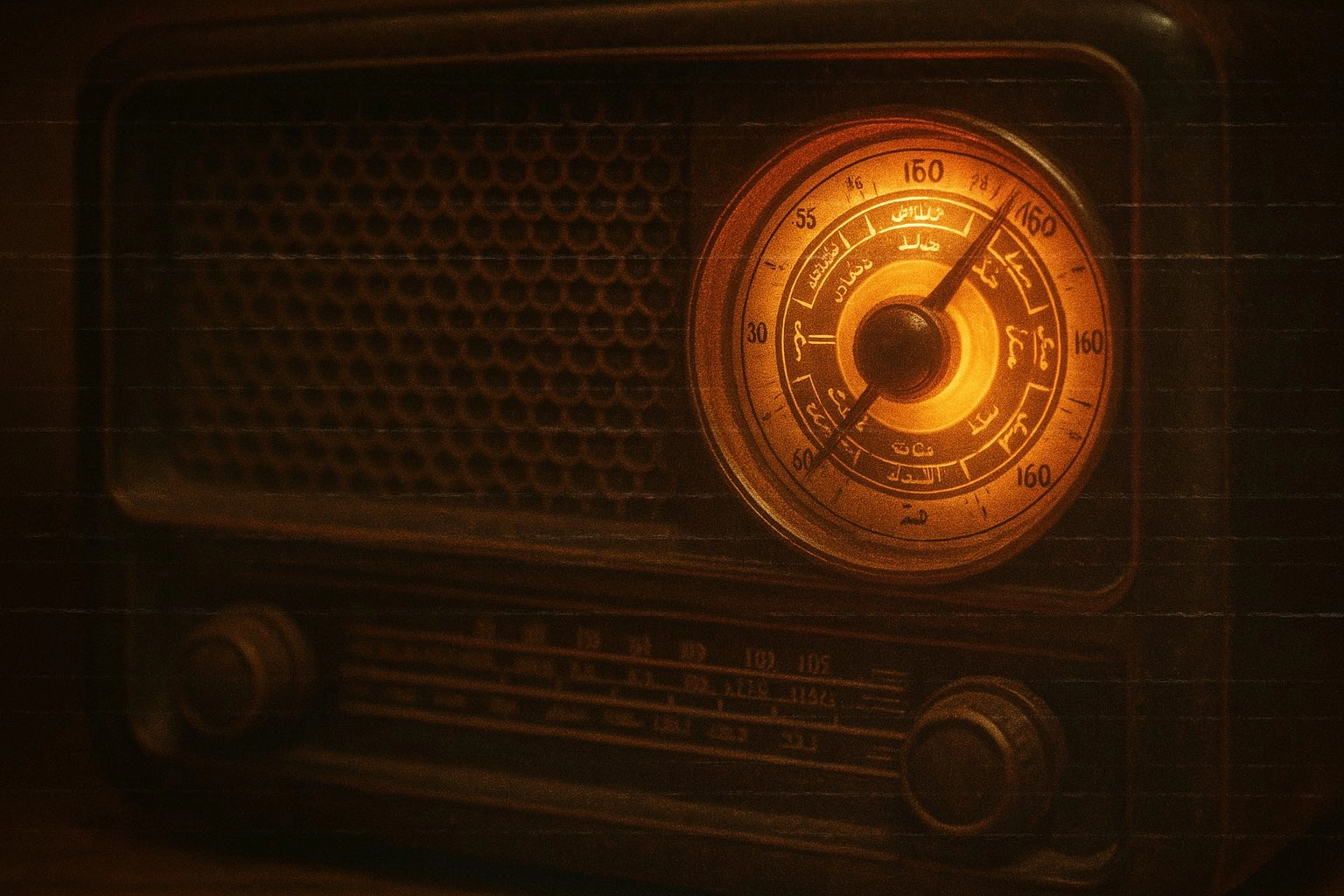I think I have a cracked ear. Maybe that’s why I love listening to old or new recordings with some kind of “noise”—what sound engineers politely call audio interference. I’m always searching for any spontaneous recording that was never meant for publishing or distribution. Those imperfections, those raw takes, give a strange sense of quick, restless flow. As if their very incompleteness holds a truth deeper than all the polished standards of modern quality.
Humans are dialectical by nature; in this age of ultra-pure digital sound, everything’s become so clear it borders on boredom. Maybe that’s because we like to leave some free space. Predetermined, perfectly molded sound leaves no room for doubt, for wondering.
That’s in general. But when these “imperfections” collide with a great melody by Sayed Darwish—whose musical temperament I’ve completely fallen for—that’s a whole other story.
What grabbed me so suddenly, at the speed of some unexpected defect, were his unusual melodies. For a long time now, I’ve been hooked on “Iqra Ya Sheikh Qafa’a” and “Bukhumar Khunfushar”—of course names the so-called “high intellectual class” would rather deny. Then there’s the odd freshness of the words themselves.
Since the start of COVID, my mind’s been echoing with the latter tune, especially when the Damascene replies to the peasant: “What’s it to you? Go on your way, brother… with a bar of soap!”
Maybe after all that hand-washing and sanitizing, that line still rings in my ear every time I see a piece of soap. In his uncanny foresight, Sayed Darwish must have known that soap would someday become a symbol of collective anxiety, of our daily rituals of fear.
Or maybe it’s deeper than that. Maybe history itself comes to us laced with noise.
Later, after all my mighty “discoveries” in sound engineering, I noticed something else: I lean toward similar human voices—ones that carry a raw, spontaneous flow, like they’re pouring down from somewhere higher. Untrained voices, maybe raspy or coarse—recalling that throat clearing from Sheikh Imam at the start of “Valery Giscard d'Estaing.” Voices that would never pass through the gates of elite conservatories.
That’s it. Peace and Code.
From “Quarantine Reflections,” adapted.

